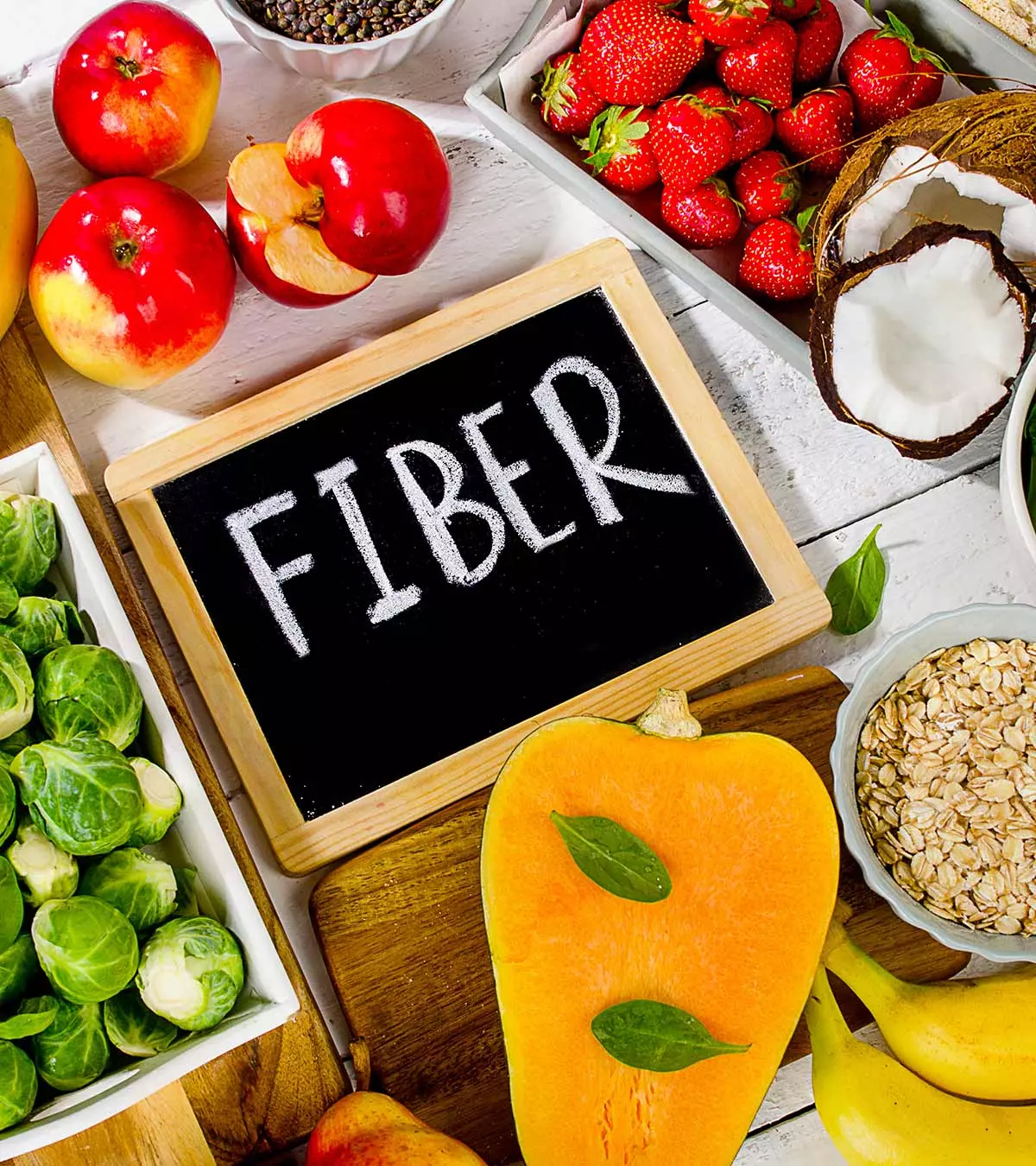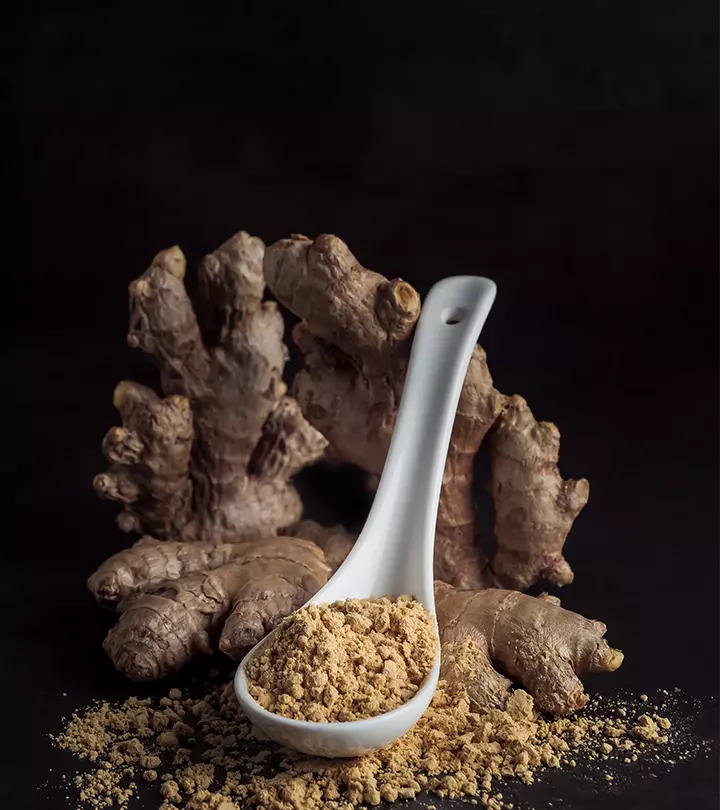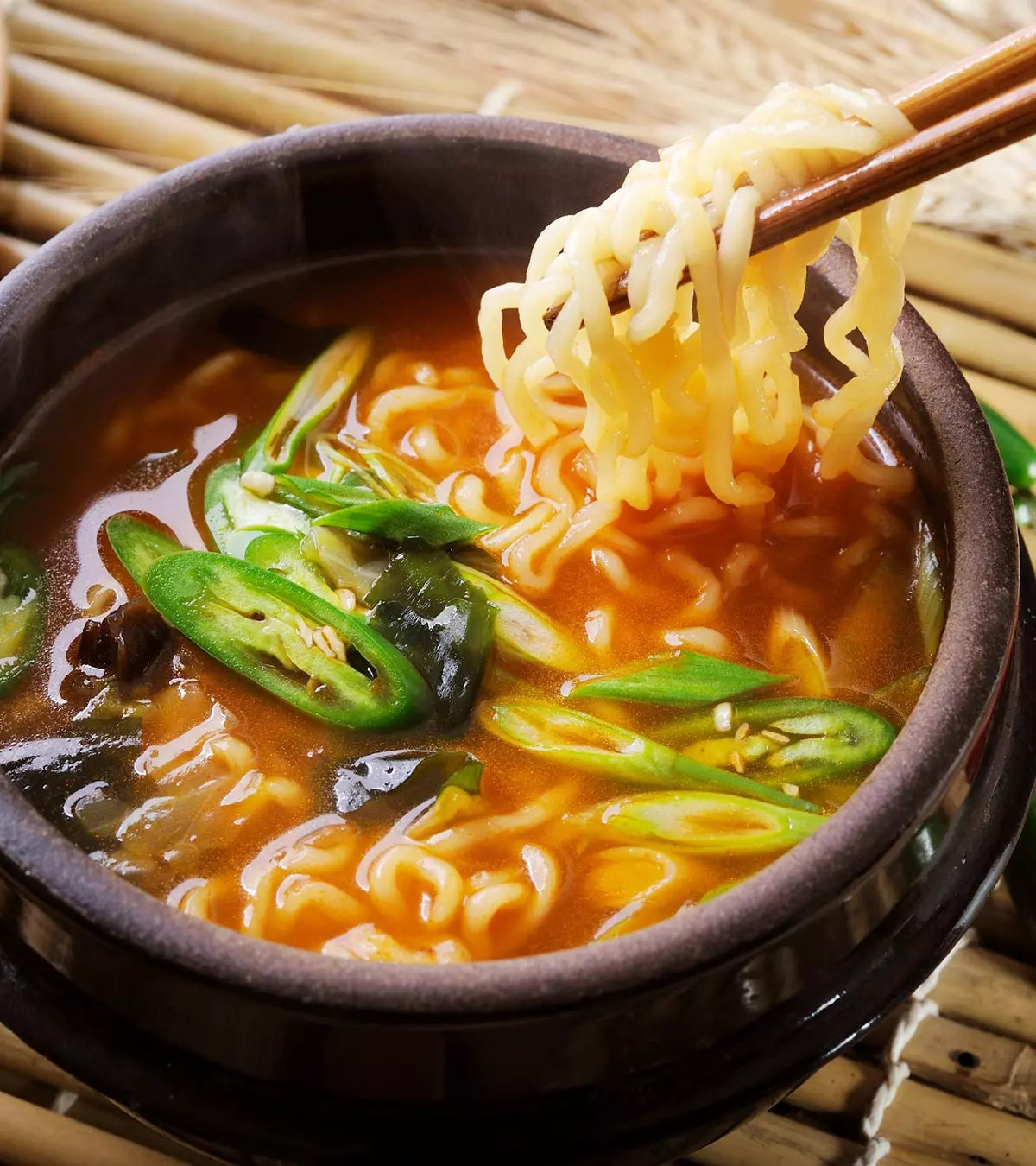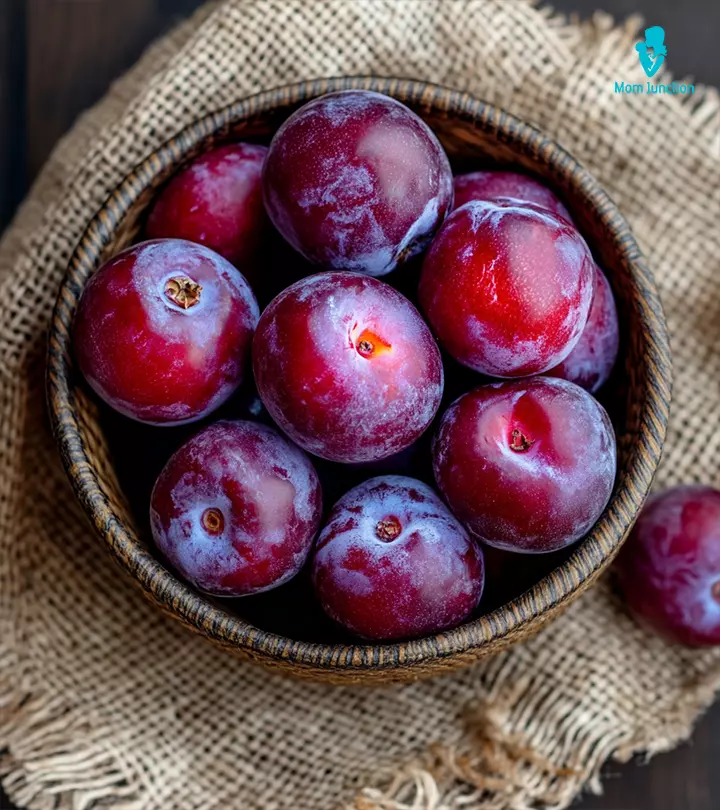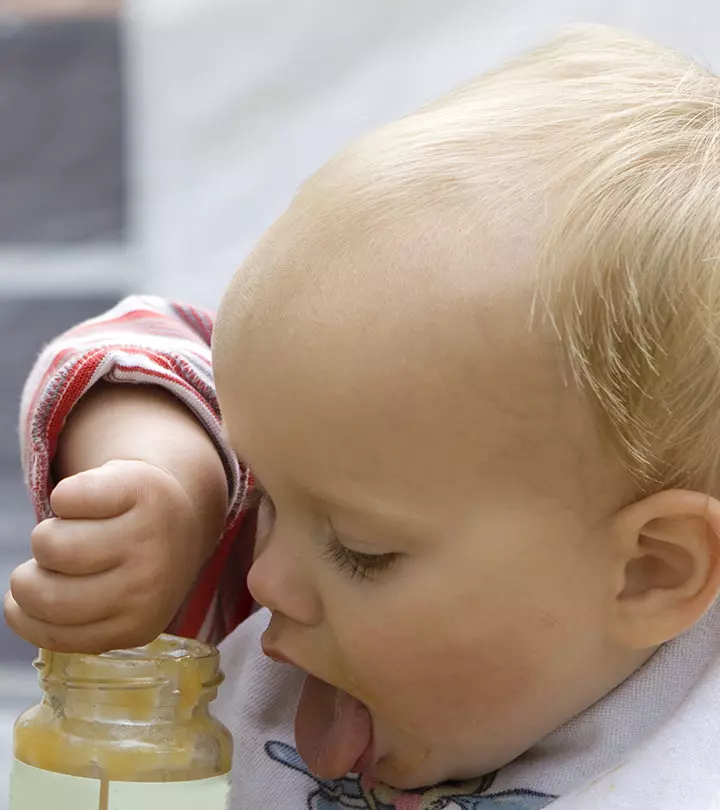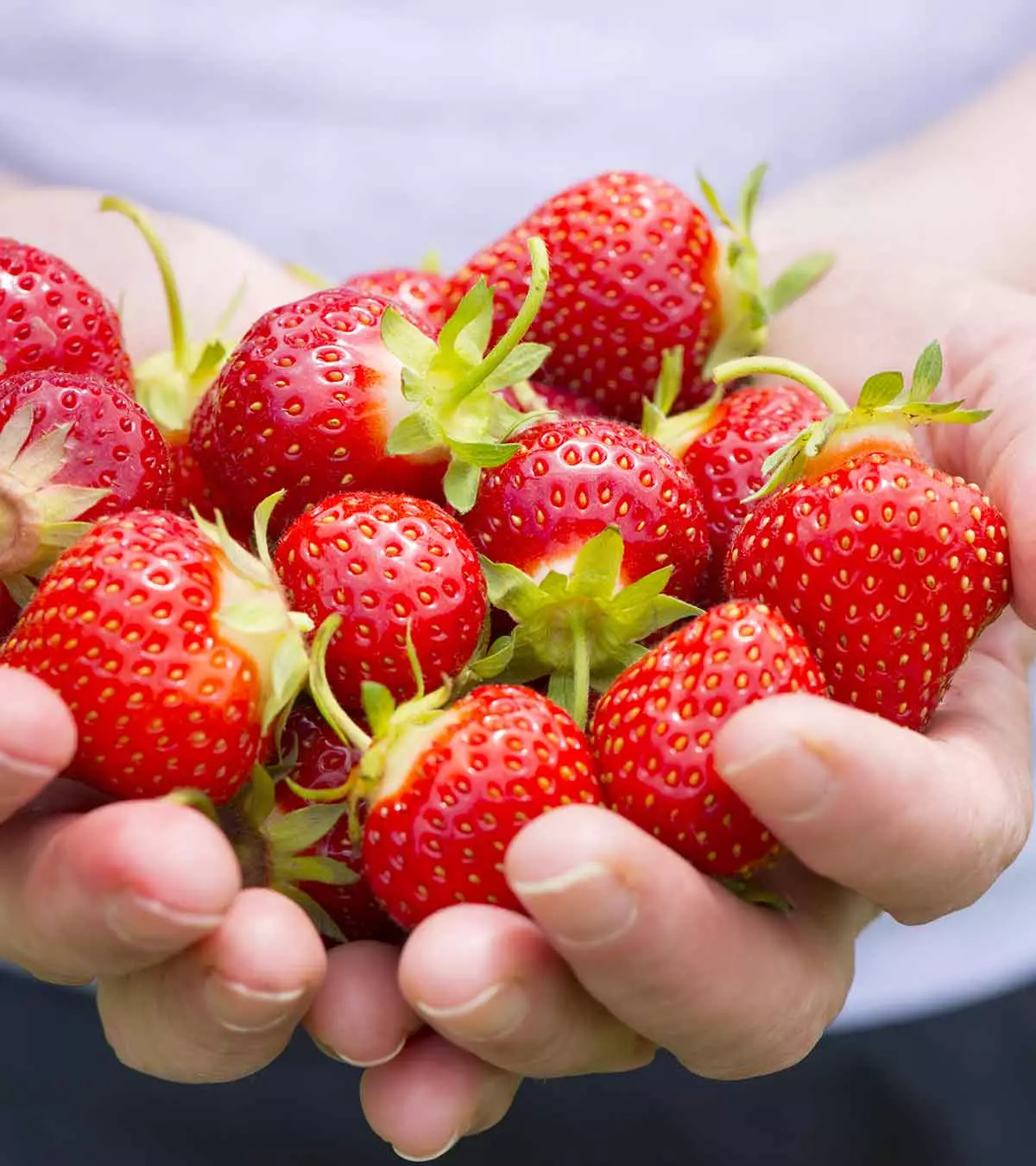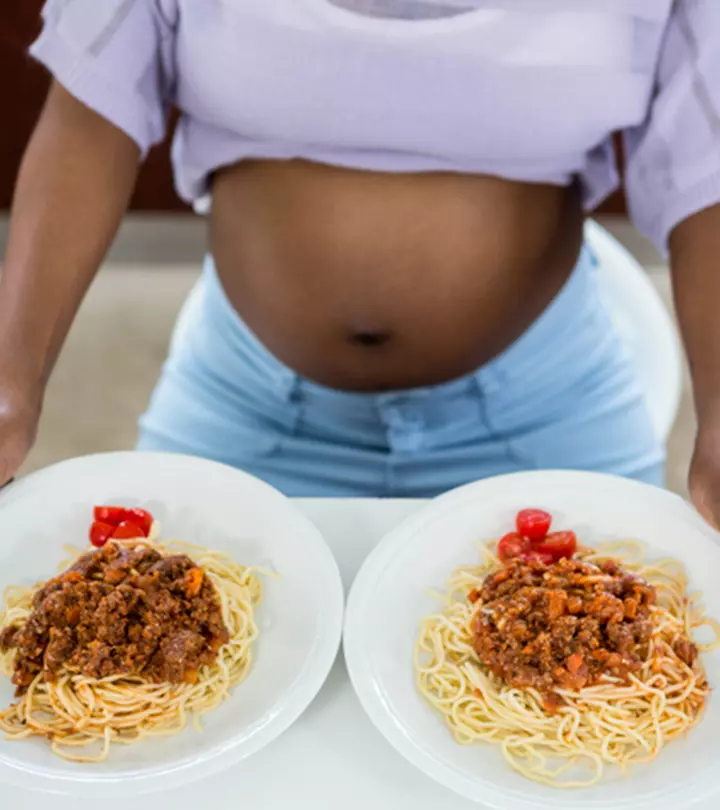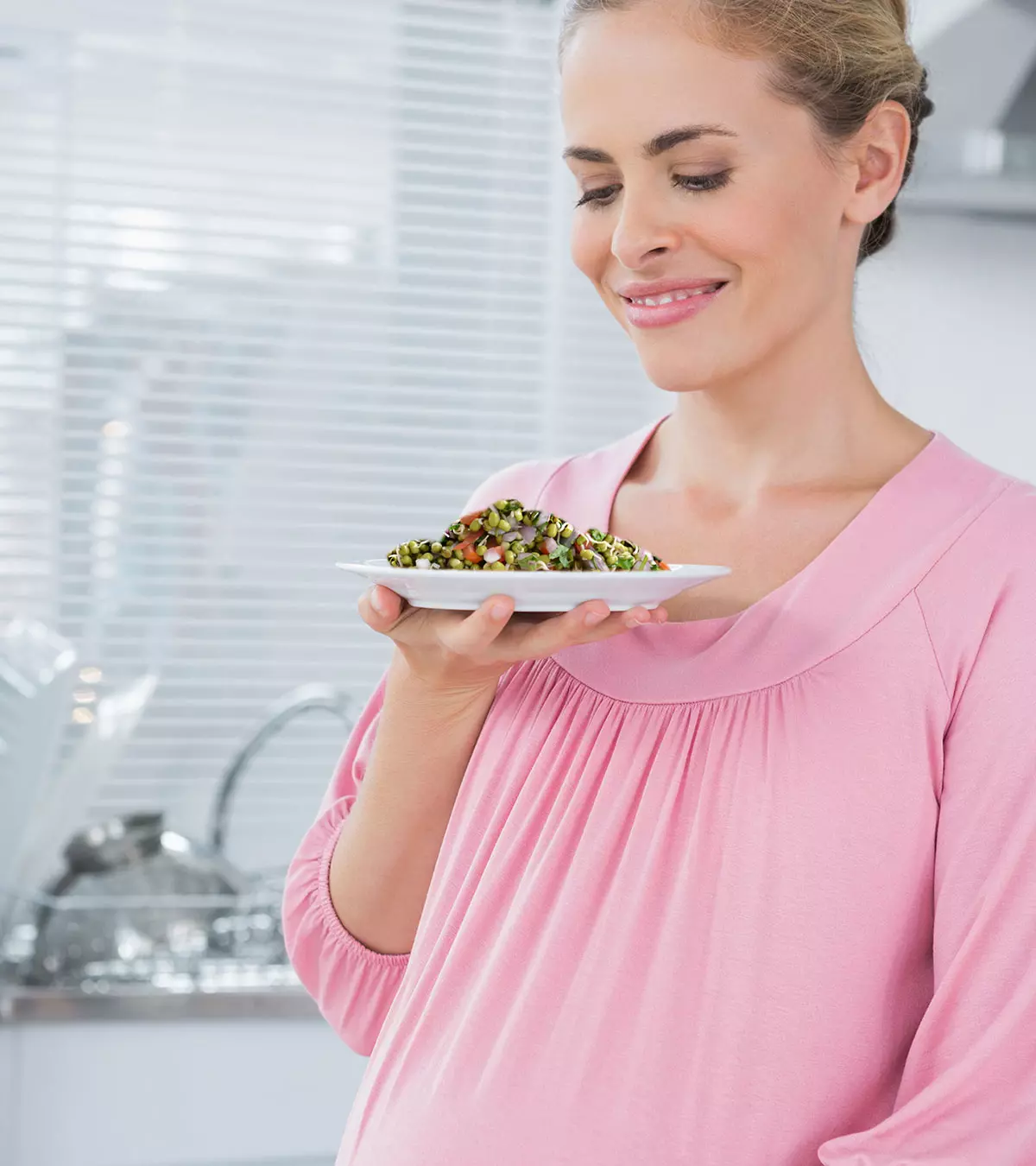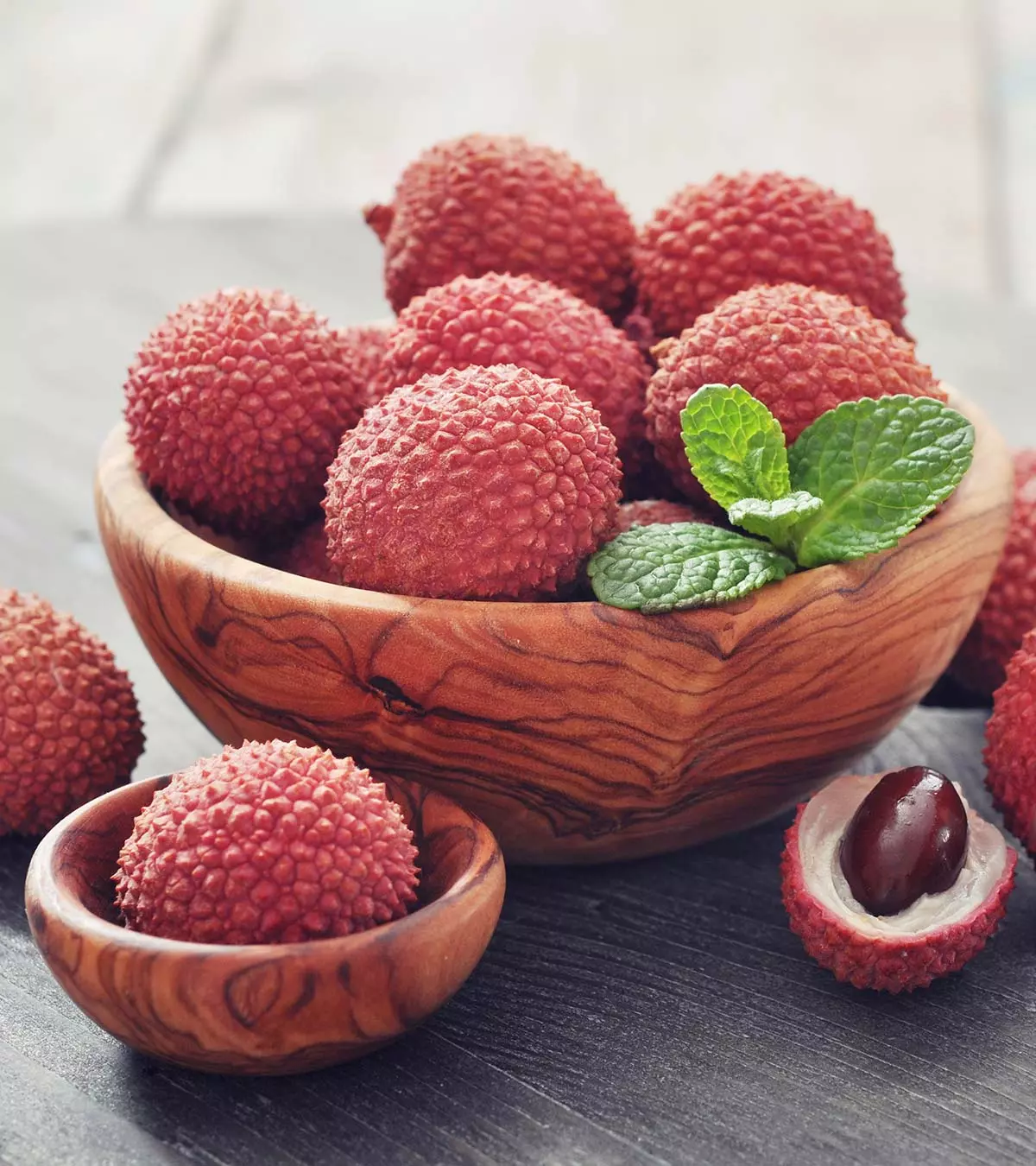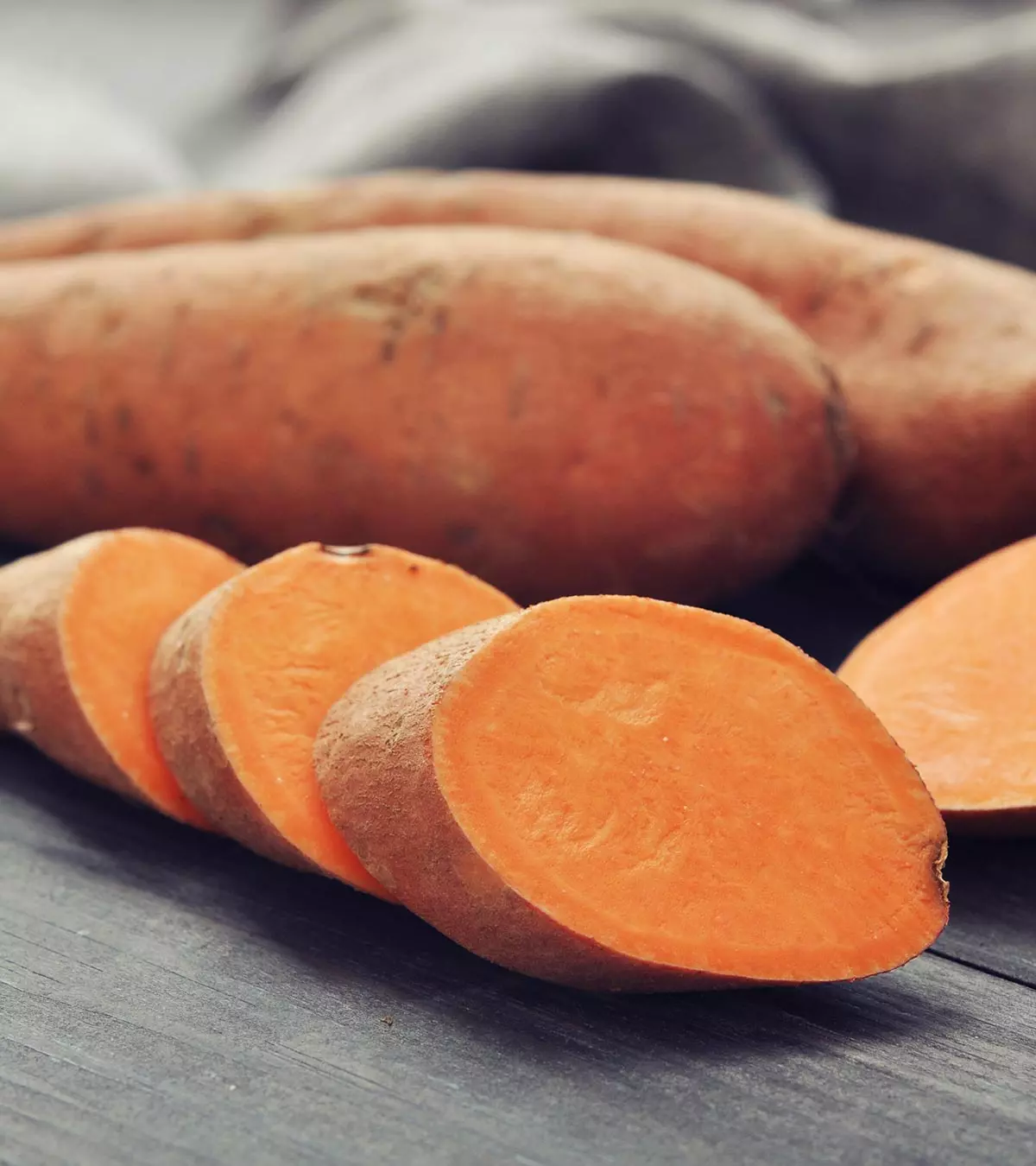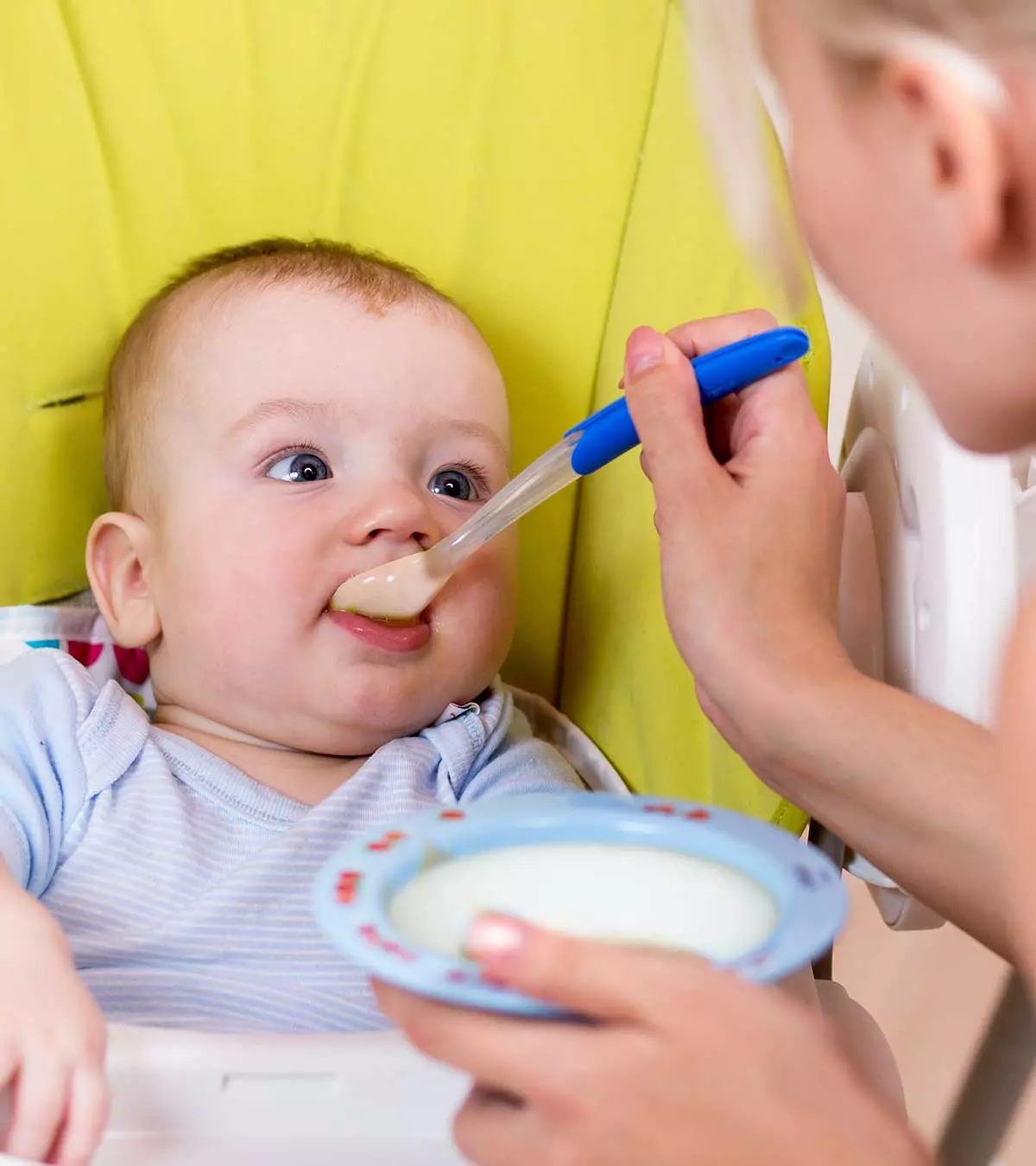
Image: ShutterStock
Rice water for babies is one of the oldest weaning foods that people in several cultures use due to its availability, simple preparation, and affordability. To prepare rice water, you need to cook the rice until it turns smooth and gets completely dissolved into the water. Drain the boiled rice, and the remaining suspended starch is called rice water (1).

But though feeding rice water to babies seems a good choice, is it a safe weaning food choice? Read on as we tell you more about the nutritional value of rice water, its possible benefits, side effects, and more.
Key Pointers
- Rice water, made up of starch and bioactive compounds, is easy to digest and hypoallergenic, making it a traditional first food for babies.
- However, rice water lacks fiber, fat-soluble vitamins, and rice proteins, so it should be used alongside other foods, not as a replacement for breast milk.
- Pediatricians or pediatric nutritionists should guide parents in introducing rice water to babies around six months of age.
- Rice water is a source of energy and can be effective in cases of infantile gastroenteritis, but it is not a substitute for breast milk and lacks nutrients.
- Rice water may reduce breast milk intake, cause allergies, and contain inorganic arsenic.
Is Rice Water Good For Babies?
Rice water is often recommended as baby’s first food as per traditional weaning practices.
It is done partly due to its easy digestibility and hypoallergenic nature. Yet, keeping its overall nutritional value in focus, rice water cannot be considered as a standalone first choice for baby food.
Why is it so? Well, the answer lies in its nutritional value.
Nutritional Value of Rice Water
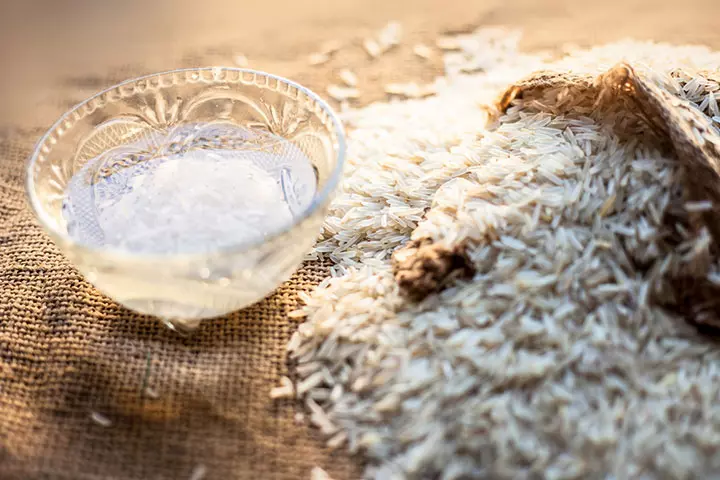
Rice water is an all-liquid rice product composed of starch, certain bioactive compounds (2), water-soluble vitamins like vitamin-B1 (thiamine), B2 (riboflavin), and B3 (niacin), and minerals like sodium and potassium. When compared to whole rice, rice water lacks fiber, fat-soluble vitamins like vitamin-A, and some vital rice proteins too.
Thus, it should ideally be used for babies as supplementary baby food along with other foods like mashed sweet potato, other vegetables and pulse puree. It will allow the baby’s meal to contain a portion of protein, micronutrientsiEssential nutrients, including vitamins and minerals that the body requires in small quantities. , and fiber.
Note: Rice water should not be used as a replacement for breast milk. Using rice water as the sole source of nutrition for babies must also be avoided.
When To Give Rice Water To Babies?
The American Academy of Pediatrics (AAP) recommends exclusive breastfeeding for babies up to six months. Infants, around the age of six months, are often considered ready to start weaning foods (3).
So, if your child shows signs of readiness by four months of age, you can plan to start rice water for your baby under the guidance of a pediatrician or pediatric nutritionist.
Let’s explore the benefits of rice water that make it one of the leading choices as a weaning food.
Health Benefits Of Rice Water For Babies

Rice water is not considered adequate for babies, yet it has some digestive health and other benefits derived from its nutritional value.
- A source of energy: Rapid growth and development in babies result in an increased energy intake. The total carbohydrate content in rice water can be a good source of energy for babies.
- Infantile gastroenteritis: Various studies have shown the effectiveness of rice water in the cases of infantile gastroenteritisiInfection of the digestive tract leading to symptoms such as watery diarrhea, vomiting, and fever in infants. . According to the World Health Organization, in 2019, diarrhea accounted for approximately nine percent of mortalities in children under five. The utilization of rice water as an effective remedy can be significantly beneficial. It could be used as a possible alternative to oral electrolyte solution or ORSiAn oral rehydration technique effective in replacing lost fluids and electrolytes (4). It is recommended to be used along with other solid foods in the maintenance phase (post rehydration with ORS) in the cases of mild to moderate dehydration. It should not be used alone as a rehydration solution (5).
 Did you know?
Did you know?- Baby’s skin: Rice water is believed to have properties that help in achieving a smooth skin tone (1). Some studies have even shown that rice water has antioxidant properties that have an anti-aging effect on the skin in the long run (2).
 Research finds
Research findsNote: Rice water has some benefits but is not a replacement to breast milk. It should only be used as a complementary food to be consumed with food items from other food groups or may be used when the baby is thirsty.
Besides these benefits, rice water may also be considered for the hydration of a baby under a pediatrician’s guidance. Do note that despite the various benefits of rice water, it is not a replacement for breast milk and other food items. It should be considered only a complementary food.
Drawbacks of Giving Rice Water To Your Baby

Rice water does have its share of disadvantages when introduced in a baby’s diet:
- May reduce the intake of breast milk: The addition of foods and other liquids (including water, soup, juice, rice-water, dal-water, etc.) interfere with optimal breastfeeding. They may fill up the child’s stomach and quench the thirst. It might lead to less intake of breast milk in babies younger than six months (6).
- Lacks nutrients: Rice water is an all-water product; hence, it does not have all the nutrients found in whole rice. The nutritive quality of rice water is considerably less than that of whole rice. Thus, rice water is not a wholesome food for the baby.
- May cause an allergy: Rice is hypoallergenic, yet a few cases of rice allergy have been reported. It is essential to look out for any allergies when introducing rice water to your baby, especially if your baby falls in the high-risk infant group or has atopic dermatitis (7).
- May have inorganic arsenic: The US FDA states that rice may contain amounts of inorganic arseniciA toxic compound with cancer-causing properties that could be found in drinking water. . Inorganic arsenic is associated with neurocognitive deficitsiA condition marked by reduced cognitive functions caused by a physical or mental health disorders affecting the brain. in babies and children (8).
Therefore, it is advisable to consult a pediatrician or pediatric nutritionist before introducing rice water to your baby.
If your baby’s doctor has given you the go ahead, then you might want to know the preparation process of rice water.
Rice Water Recipe
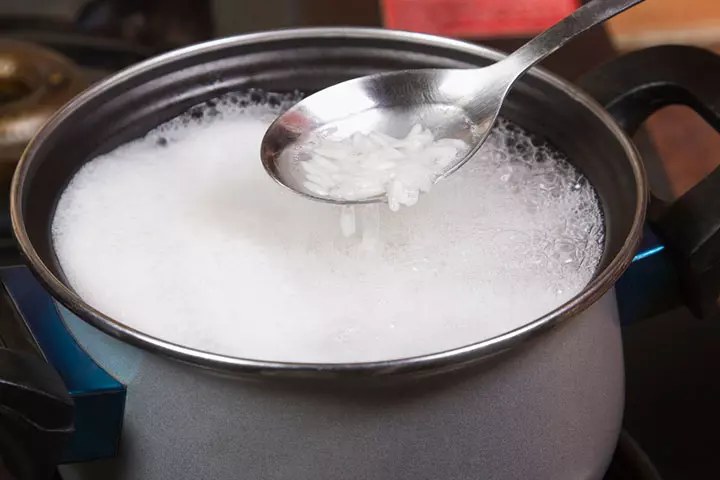
Always prepare a fresh batch of rice water for your baby. Here is how you can make it
You will need:
- 2tbsp rice – Two tablespoons
- 1 cup water
How to:
- Clean all the utensils that you will use for preparation.
- Rinse the rice thoroughly to wash off any impurities.
- Now place a saucepan on flame and pour water in it.
- Add rice and boil until it is smooth yet mushy with starchy water visible on the surface.
- Strain the rice and collect the starchy rice water.
Precautions While Introducing Rice Water To Babies
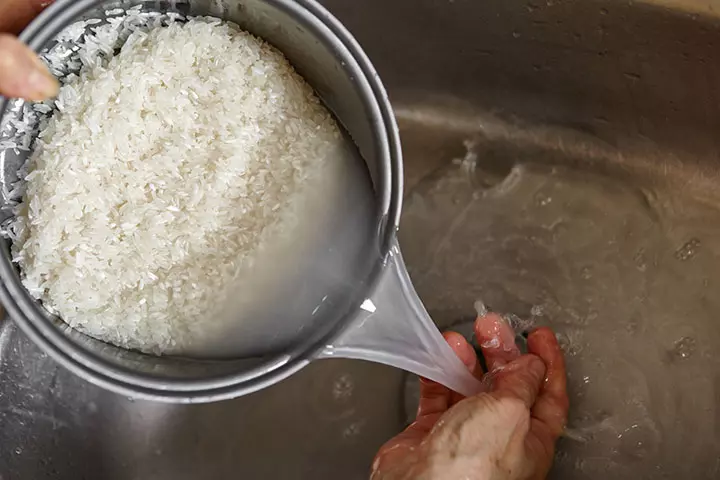
- Maintain a gap of 3-5 days between introducing any other new food. It will help identify the cause of food allergy or intolerance, if any.
- If your baby is allergic to any other whole grain, then there are chances of cross-reaction. Stay alert to signs and symptoms of food allergies in babies, such as fever, diarrhea, vomiting, stomach upset, rashes, and shortness of breat (9).
- Rice, depending on its variety and cultivation, is generally found to contain inorganic arsenic. Thus, it is essential to take some precautions while serving rice water to your baby (10):
- Give preference to organic rice
- Rinse rice with water thoroughly before cooking
- Cook rice in 6-10 parts of water to one part of rice
- The US FDA recommends caregivers to provide infants a well-balanced diet with a variety of fortified cereals in the diet (11).
 Quick fact
Quick factRemember that rice water must be a part of a wholesome meal containing food items from various categories.
Frequently Asked Questions
1. Can we add rice water in baby cereal?
Rice water is not a nutritionally adequate weaning food. But it can be made wholesome by adding it to other food items like vegetable puree or baby cereals like rice cereal. If you add rice water to rice cereal for babies, do not add more water, as the formula might become more diluted than recommended. You may replace water with rice water.
2. Can rice water be used as a hair wash for babies?
There are no scientific studies to substantiate the benefits of rice water for hair, especially in babies. Rice water is commonly used in hair cosmetic products in Japan, China, and Southeast Asia. You can use rice water to wash your baby’s hair since it is considered safe for topical applications.
3. Which rice is best for rice water?
While the best rice type to make rice water for babies is unknown, it may be a good idea to make rice water from organic rice procured from a trusted source.
4. Can I give rice water to my baby at night?
There are no specifications available about the particular time when you can feed rice water to babies. Nevertheless, it should be used only as a supplement to the usual diet and not as a sole source of infant nutrition. Consult your pediatrician to understand if the baby should be given rice water or not and the schedule you should follow.
5. How frequently can I give my baby rice water?
You may start with minimum quantities and observe how your baby reacts to it. It is better to consult your doctor for recommendations on feeding rice water.
Rice water for babies is often recommended as a weaning food after six months of exclusive breastfeeding. Although it has less nutritional value, it is hypoallergenic and easily digestible food. Rice water lacks certain vitamins, proteins, and fibers compared to whole rice. However, it should be given in moderation or added with other nutritious solid foods since this may reduce the intake of breastmilk or other foods and result in deficiencies. There is also not enough evidence to support the benefits of rice water hair wash for babies.
Infographic: Potential Benefits And Risks Of Rice Water For Babies
For infants older than six months, rice water can be an excellent choice as their first food for a variety of reasons. If you want to introduce this completely liquid meal to your little one’s diet, have a look at the infographic below to learn about the advantages and disadvantages of rice water for babies.
Some thing wrong with infographic shortcode. please verify shortcode syntax
Illustration: Are There Any Health Benefits Of Rice Water For Babies?

Image: Dall·E/MomJunction Design Team
Learn how to make nutritious rice water for your baby’s first stage of solid food. Easy to make and perfect for your little one, this recipe can be very beneficial!
References
1. Shruti Awasthi et al.; Physico-chemical properties of different kind of rice water and their effect on diarrhoea causing bacteria and dandruff causing fungi; Semantic Scholars (2011)
2. Joana Marto et al.; Rice Water: A Traditional Ingredient with Anti-Aging Efficacy; MDPI
3. What is weaning and how do I do it?; National Institute of Health; National Institute of Child Health and Human Development (2017)
4. Wong HB; Rice water in treatment of infantile gastroenteritis.; National Centre For Biotechnology Information (1981)
5. Tavarez LA et al.; Management of acute diarrheal disease with rice water; National Centre For Biotechnology Information (1991)
6. Nutrition; Indian Academy of Pediatrics; Breastfeeding Promotion Network of India
7. You Hoon Jeon et al.; Identification of major rice allergen and their clinical significance in children; National Centre For Biotechnology Information (2011)
8. Statement by Dr. Susan Mayne on FDA efforts to reduce consumer exposure to arsenic in rice; Press Announcements; USFDA (2018)
9. Frequently Asked Questions about Food Allergies; Food Allergens; USFDA (2017)
10. What You Can Do To Limit Exposure To Arsenic; FDA
11. For Consumers: Seven Things Pregnant Women and Parents Need to Know About Arsenic in Rice and Rice Cereal; USFDA (2016)
12. Diarrhoea Dialogue; Rehydrate
13. Kristien De Paepe et al.;Effect of rice starch as a bath additive on the barrier function of healthy but SLS-damaged skin and skin of atopic patients; NCBI (2002)
14. The Benefits of Using Rice Water on Your Hair; Cleveland Clinic
Community Experiences
Join the conversation and become a part of our nurturing community! Share your stories, experiences, and insights to connect with fellow parents.
Read full bio of Dr. Anuradha Bansal
Read full bio of Swati Patwal
Read full bio of Rohit Garoo
Read full bio of Ghazia Shah





